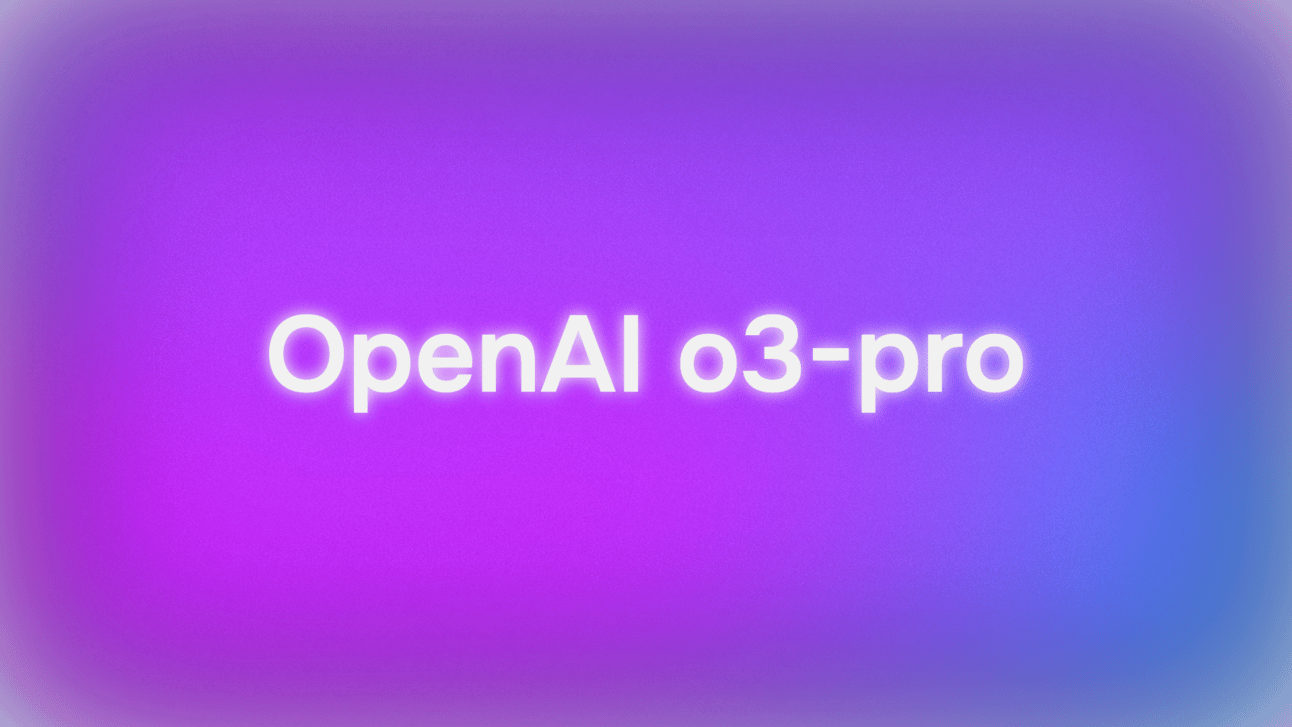- AI Weekly Insights
- Posts
- AI Weekly Insights #80
AI Weekly Insights #80
Apple Phone Smarts, Disney AI Showdown, Browsers With Built-In Bots
Happy Sunday,
Grab your coffee and buckle up because ‘AI Weekly Insights’ #80 is stacked. Apple just slipped AI into every corner of the iPhone, Disney and Universal dragged Midjourney into court, a brand-new browser called Dia wants to ditch tabs for a built-in assistant, and OpenAI rolled out a premium brain that costs extra but thinks harder. Big tech is shipping magic, Hollywood is lawyering up, and the browser wars just got weird.
Ready? Let’s dive in.
The Insights
For the Week of 06/08/25 - 06/14/25 (P.S. Click the story’s title for more information 😊):
What’s New: Apple has previewed its first wave of "Apple Intelligence" tools in iOS 26, and they’re coming straight for your daily habits, from photos to phone calls.
Biggest AI Announcements:
Visual Intelligence: The iPhone will be able to recognize what’s on screen and conduct an image search related to what you see.
Live Translation: FaceTime, Messages, and even regular phone calls will support real-time translations with on-screen captions or voice output.
Call Screening + Hold Assist: Apple Intelligence will pick up unknown calls, listen in, and only ping you when a real person starts talking.
AI-Enhanced Shortcuts: Shortcuts will support AI actions like summarizing text or generating responses, making automations way smarter.
Image Playground with ChatGPT: You will be able to generate images using ChatGPT’s more advanced image generator.
Foundation Models for Devs: Apple’s on-device models are open to developers, letting apps tap into AI features without ever sending data to the cloud.
Why It Matters: Apple is not trying to show off with big AI tricks. Instead, it is adding helpful features to things people already use, like phone calls, photos, workouts, and translations. Most of this works right on the device, which means your data stays private and the tools feel fast. Apple also made it easier for other apps to use these AI tools, which could lead to more smart features in your favorite apps over time. But the big thing missing was Siri. Apple has already said a major upgrade to Siri is coming, but it has been delayed until sometime in 2026. That delay gives Apple time to polish it and make sure the rest of the system is ready. The new Siri will likely build on these features, tying everything together. If Apple pulls it off, Siri could finally feel like the smart assistant people hoped for years ago.
What's New: Disney and Universal have filed a lawsuit against Midjourney for letting users generate lookalikes of their characters with AI prompts.
Behind the Scenes: Filed in a Los Angeles federal court, the 110-page complaint says Midjourney scraped millions of copyrighted images to train its model. The studios show side-by-side examples of AI outputs next to official art and call the service a “bottomless pit of plagiarism.” They want a court order that would force Midjourney to block prompts targeting their characters, wipe any Disney or Universal images from its training set, and pay damages tied to the roughly 300 million dollars the startup made last year. The filing names a long list of plaintiffs, from Marvel and Lucasfilm to DreamWorks, and argues the company skipped basic licensing steps that other AI firms are at least trying to follow. Midjourney’s CEO has said the model was built from a broad internet scrape, and the company has not yet responded in court.
Why it Matters: This case could set the first big rules for how AI art tools treat copyrighted stuff. If Disney and Universal win, every image generator may need tight filters or pricey licenses, which could slow the wild creativity users love and raise subscription costs. A Midjourney victory would give AI companies more cover to keep training on whatever they can find online, leaving artists and studios to chase individuals one by one. The outcome also matters for anyone who creates art, games, or ads, because it will signal whether your original style can be cloned at scale without a paycheck. For developers, the decision might define whether future models can still learn from the open internet or must stick to walled-off, licensed data. Most of all, the fight shows how fast old-school entertainment giants are moving to guard their brands, while new AI players push hard for an open remix culture. Keep an eye on this one; it could decide who gets to own what we imagine next.

Image Credits: Disney and Midjourney
What's New: The Browser Company has opened up an invite-only beta for Dia, a new web browser built around a built-in AI assistant rather than tabs and search bars.
How Dia Works: Dia looks like a stripped-down Arc, but the star is an assistant you can reach from the address bar or with a quick shortcut. It can chat about the page you are on, search through every open tab, read your email in Gmail, and even pull info from videos while they play. Behind the scenes a skills router decides which model or tool should answer, so a shopping request might go to a prices API while a long article gets fed to a summarizer. The browser can use cookies and login sessions you already have, so it can fetch paywalled content you are allowed to see without asking again. For now Dia is Mac-only, available to existing Arc members first, with a waitlist for everyone else. Privacy is a selling point: queries are encrypted locally and the company says it keeps as little data as possible.
Why it Matters: Browsers have not changed much since Chrome took over, but Dia flips the script by putting an AI helper at the center of every click. If this works, the browser itself could become the place you ask questions, draft emails, or plan trips, instead of using search engines or ChatGPT. That would threaten the ad-heavy search business model and push rivals like Google and Microsoft to bundle deeper AI in Chrome and Edge. Dia also shows how powerful on-device context can be, since it can see your history, bookmarks, and cookies to answer with real personalization that standalone bots cannot match. For knowledge workers the promise is less tab juggling and more direct answers, which could raise expectations for productivity across the web. There are risks too, from privacy worries to model mistakes that feel bigger when they are baked into the browser itself. Still, Dia’s beta is an early peek at what a truly AI-native internet experience might feel like, and it puts pressure on the rest of the browser world to catch up.
What's New: OpenAI has released o3-pro, a tougher version of its o3 model, already live in ChatGPT Pro, ChatGPT Teams, and their API.
Under the Hood: OpenAI says o3-pro thinks through problems step by step, and scores higher than the regular o3 in coding, science, and writing tests. Users still get web browsing, file and image analysis, Python runs, and memory-based style control, but replies arrive a bit slower because the model weighs more ideas before answering. The extra muscle shows up in the price as well. o3-pro replaces the older o1-pro model for Pro and Teams users and will reach Enterprise and Education accounts next week. Temporary chats are paused, and the model cannot make images or work inside the Canvas workspace yet.
Why it Matters: This new model shows that OpenAI is starting to charge more for its smartest AI tools. O3-pro gives better answers, but it costs more and takes a little longer to reply. That means people who want faster results might stick with the regular o3, while others who care more about accuracy will upgrade. It also gives developers more options, so they can choose the right tool for the job without jumping straight to an expensive custom setup. This puts pressure on other companies like Google and Anthropic to offer similar “pro” versions of their own models. Over time, we might see a bigger gap between free AI tools and paid ones that are much more powerful. For businesses and power users, o3-pro is a chance to get smarter answers without going all-in on enterprise plans. For everyone else, it’s a sign that the best AI features may start to live behind a paywall.

That’s a wrap on this week’s AI whirlwind. From courtroom showdowns to smarter phones and pay-to-play chatbots, the future keeps arriving faster than our weekend plans. Keep tinkering, keep questioning, and we’ll meet back here next Sunday to see what else the robots cooked up.
Catch you next Sunday.
Warm regards,
Kharee